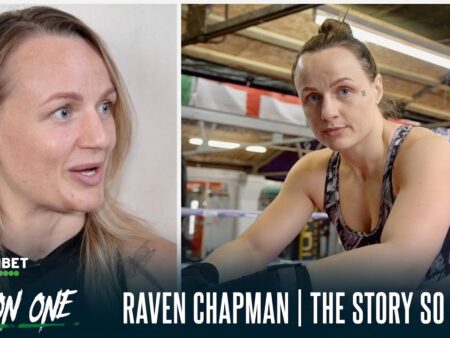The boxing world pauses, collectively draped in a somber hush, as it grapples with the tragic news of Ricky “The Hitman” Hatton`s passing. A titan of the ring, a champion who etched his name into the annals of British sporting folklore, Hatton`s departure leaves an undeniable void. Amidst the widespread grief, a voice from an unexpected quarter has emerged to pay tribute: that of Junior Witter, the man who, for years, stood as Hatton`s most persistent and, some would argue, unfulfilled rival.
The Unresolved Saga: Hatton vs. Witter
For over a decade, the names Hatton and Witter were inextricably linked, a captivating narrative thread woven through the fabric of British super-lightweight boxing. Their rivalry wasn`t merely professional; it was personal, born in the raw crucible of amateur contests in the late 1990s and simmering with an intensity that transcended their respective professional careers. Witter, known as “The Hitter,” meticulously built a formidable record, often with the express goal of confronting his Manchester counterpart, Ricky Hatton. He relentlessly pursued an all-British clash, a fight that promised fireworks and a definitive answer to a question many fans pondered: who truly held supremacy?
Hatton, with his meteoric rise to global stardom and a fervent legion of supporters, famously resisted. His focus was on the grand stages, the lucrative bouts with international icons. From his perspective, Witter, despite holding the prestigious WBC super-lightweight title at one point, hadn`t quite earned the platform a fight with “The Hitman” would provide. This stance, while strategically sound for Hatton’s career trajectory, left Witter perpetually frustrated, denied the opportunity to test himself against Britain`s most popular pugilist. The boxing cognoscenti debated endlessly: could Witter`s unorthodox style and formidable power have troubled Hatton? Or was Hatton, indeed, a level above?
Now, with Hatton`s untimely passing, that tantalizing “fight that never was” is truly, and irrevocably, a phantom. A poignant reminder that some narratives, no matter how compelling, are destined to remain incomplete within the squared circle.
Beyond the Ropes: An Unexpected Bond
Yet, the story doesn`t end with a clash of fists. In a turn that often surprises those outside the insulated world of professional combat sports, the fierce rivalry between Hatton and Witter softened with retirement. Speaking to Warcry Publishing, Witter revealed a transformation from adversaries to friends, a bond forged not through punches, but through shared experience and mutual respect.
“There was a lot of respect, there was a lot of love within what we are, who we are and what we achieved… We got on, we weren’t the best of friends, but we were friends, and we had some really deep conversations within the time [since retirement]. It is weird knowing that he is not going to be around.”
This candid admission paints a picture of a relationship that matured beyond the competitive facade. The common journey, the shared sacrifices, and the understanding of the immense pressures of their profession transcended past grievances. They spoke, they connected, and a respect that was always simmering beneath the surface finally blossomed into genuine camaraderie.
The Enduring Impact of “The Hitman”
Witter`s tribute extends beyond personal anecdotes to acknowledge Hatton`s profound influence on the sport itself. He lauded Hatton’s “brilliant career,” highlighting the Manchester icon’s achievements: multiple world titles, a vibrant domestic scene he helped invigorate, and even the fulfillment of personal dreams like sharing a stage with Oasis. Hatton`s era, following in the footsteps of “Prince” Naseem Hamed, undeniably galvanized British boxing, drawing unprecedented crowds and capturing the public imagination.
For Witter, Hatton wasn`t just a rival; he was an indelible part of his own career narrative. “As much and as many times as I’ve tried to get away from the whole thing and not talk about him, someone always brought it back in and focused on that little bit,” Witter mused, recognizing the intertwined nature of their paths. Even away from the cameras, the “little digs and little comebacks” shared between them speak volumes of a deep, if sometimes adversarial, connection.
A Legacy Beyond Words
Ultimately, Witter struggles, as many do, to articulate the sheer scale of public affection for Ricky Hatton. He was more than a fighter; he was a working-class hero, a relatable figure whose authenticity resonated deeply with millions. His vulnerability, his triumphs, and even his struggles outside the ring, endeared him to a nation.
“He was a very deeply loving and loved person and he will sadly be missed. We haven’t got words for the impact that he has had on people’s lives, in such a short life.”
In this profound statement, Witter encapsulates the sentiment of an entire community. Ricky Hatton`s story is one of a champion, a showman, a rival, and ultimately, a friend. His passing is not just a loss for boxing, but a loss for everyone touched by the larger-than-life presence of “The Hitman,” a legacy that will undoubtedly echo for generations to come, remembered even by those he once stood opposite.











